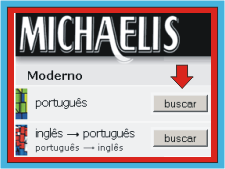I never felt nothing in the world like this before. Eu nunca senti nada neste mundo como isto antes.
Now I’m missing you Agora eu esto sentindo a sua falta.
and I’m wishing you would come back through my door E eu estou esperando que você volte por minha porta.
Why did you have to go? Porque você teve que ir?
You could have let me know; Você poderia ter me informado.
so now I’m all alone. Então agora estou todo sozinho.
Girl you could have stayed, Garota, você poderia ter ficado,
but you wouldn’t give me a chance Mas você não me deu uma chance.
With you not around, Com você não aqui.
it’s a little bit more than I can stand é um poquinho mais do que eu posso aguantar.
And all my tears, E todas minhas lagrimas,
they keep runnin’ down my face Elas estão seguem correndo em minha face abaixo.
Why did you turn away? Porque você virou as costas. [abandonar emocionalmente, tornando as costas]
So why does your pride make you run and hide. Então, porque
Are you that afraid of me?
But I know it’s a lie what you keep inside
This is not how you want it to be
So baby I will wait for you
Cause I don’t know what else I can do
Don’t tell me I ran out of time
If it takes the rest of my life
Baby I will wait for you
If you think I find it just ain’t true
I really need you in my life
No matter what I have to do
I’ll wait for you
Been a long time since you called me
(How could you forget about me)
You gotta be feeling crazy
How can you walk away
(When) Everything stays the same
I just can’t do it baby
What will it take to make you come back
Girl I told you what it is and it just ain’t like that
Why can’t you look at me?
You’re still in love with me
[ Wait For You lyrics found on http://www.completealbumlyrics.com ]
Don’t leave me crying
Baby why can’t we just start all over again
Get it back to the way it was
If you give me a chance I can love you right
But you’re telling me it won’t be enough
So baby I will wait for you
Cause I don’t know what else I can do
Don’t tell me I ran out of time
If it takes the rest of my life
Baby I will wait for you
If you think I find it just ain’t true
I really need you in my life
No matter what I have to do
I’ll wait for you
So why does your pride make you run and hide
Are you that afraid of me?
But I know it’s a lie what you’re keeping inside
That is not how you want it to be
Baby I will wait for you
Baby I will wait for you
If it’s the last thing I do
Baby I will wait for you
Cause I don’t know what else I can do
Don’t tell me I ran out of time
If it takes the rest of my life
Baby I will wait for you
If you think I find it just ain’t true
I really need you in my life
No matter what I have to do
I’ll wait for you
I’ll be waiting …
Auxiliary Verbs / Verbos auxiliares
The most common auxiliary verbs are "be," "do," and "have", and you may also use these verbs on their own. You use "Will" and "shall" to express future time.
In each of the following examples, a verb commonly used as an auxiliary verb appears as a simple predicate:
- She is the chief engineer.
- The tea cups are in the china cabinet.
- Garth does this kind of thing frequently.
- My roommates and I do the laundry every second week.
- They have several kinds of gelato in the display case.
The following verbs are modal auxiliaries: These common auxiliaries are "can," [can't] "could," [couldn't] "may," [may not] "might," [mightn't] "must," [mustn't] "ought," [oughtn't] "should," [shouldn't] "will," [will not / won't] and "would." [wouldn't] A verb like these is called a modal auxiliary and expresses necessity, obligation, or possibility.
The highlighted word in each of the following sentences is a modal auxiliary:
- Zora was pleased to learn that she could take several days off.
- The small freckled girl told her neighbours that she would walk their dog for an appropriate fee.
- Henry told Eliza that she ought to have the hole in the bucket fixed.
- The principal told the assembled students that the school board might introduce a dress code next autumn.
I can't complete my assignment because he still has my notes.
- According to the instructions, we must leave this goo in our hair for twenty minutes.
Several words may intervene between the auxiliary and the verb which goes with it, as in the following sentences:
- They have not delivered the documents on time.
- The treasure chest was never discovered.
- The health department has recently decided that all high school students should be immunised against meningitis.
- Will you walk the dog tonight?
- The ballet corps was rapidly and gracefully pirouetting about the stage.
action verb verbo auxiliar verbo comprimento
He has a car. / Ele tem um carro. OU He does have a car. Ele, sim, têm um carro.
Uma afirmação com a palavra "does" é uma afirmação enfatizante.
Em inglês, "does" é verbo transitivo, pois é um complemento que precisa.






